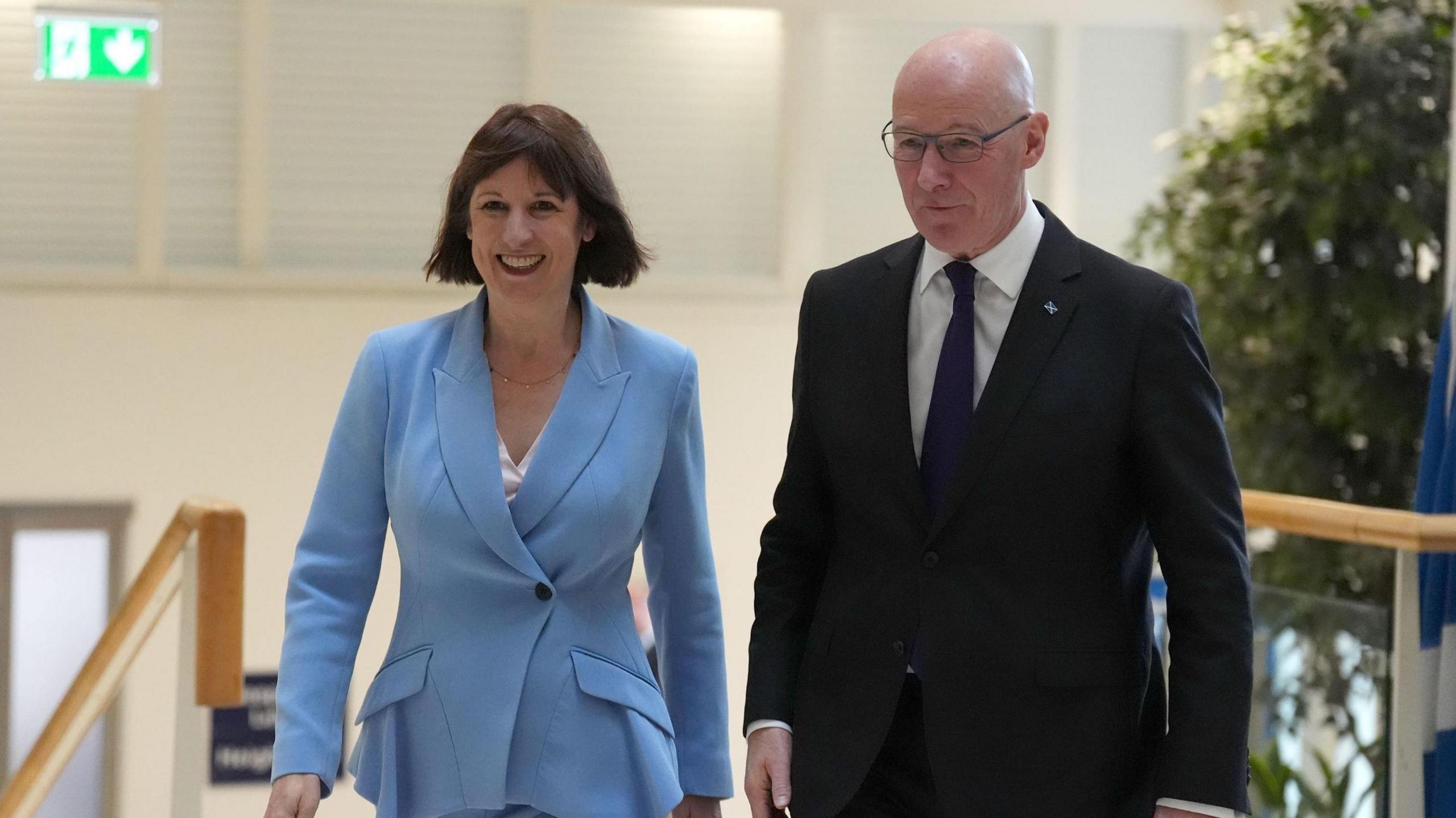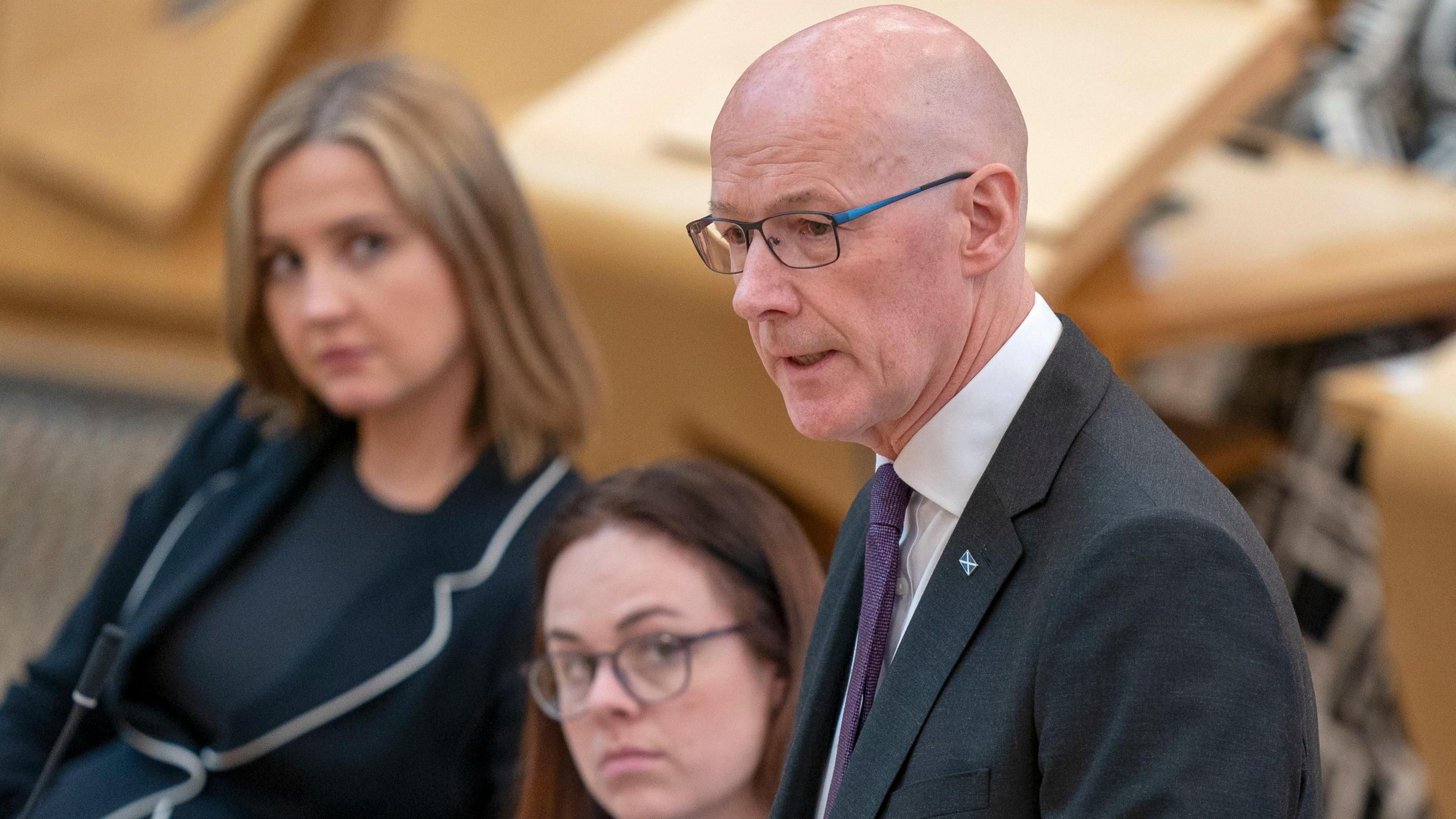SNP policies will not 'move dial' on child poverty - charity
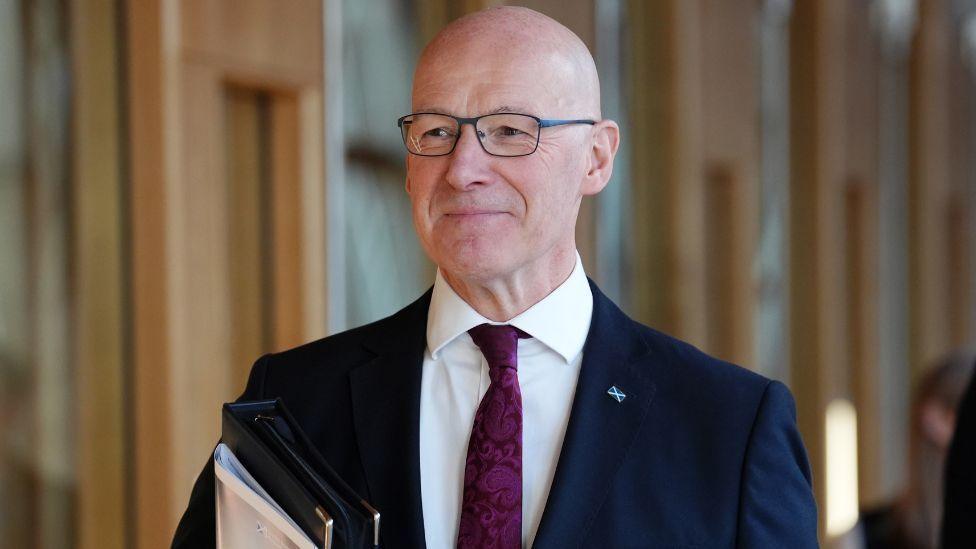
First Minister John Swinney's government has announced £500m of cuts
- Published
The Scottish government's policies will not "move the dial" on child poverty, campaigners have warned after the first minister said it was his top priority.
Mr Swinney was also criticised for ditching a commitment to expand free school meals in his new programme for government.
Save the Children Scotland said the programme was missing the "funded pledges" to meet child poverty targets.
The Scottish Greens, who are also angry about cuts to environmental initiatives, have hinted they will not support the upcoming budget. The Scottish government has said its finances are "extremely constrained".
Ministers have announced £500m of cuts as they aim to plug an almost £1bn hole in public finances.
In his spending plans for the coming year, Mr Swinney said eradicating child poverty it would be his administration's "moral compass" and promised "a system of whole family support".
He told MSPs the government had committed £3bn a year to eradicating poverty and mitigating the impacts of the cost-of-living crisis.
The first minister also vowed to invest nearly £1bn a year in “affordable, high-quality and funded” early learning and childcare.
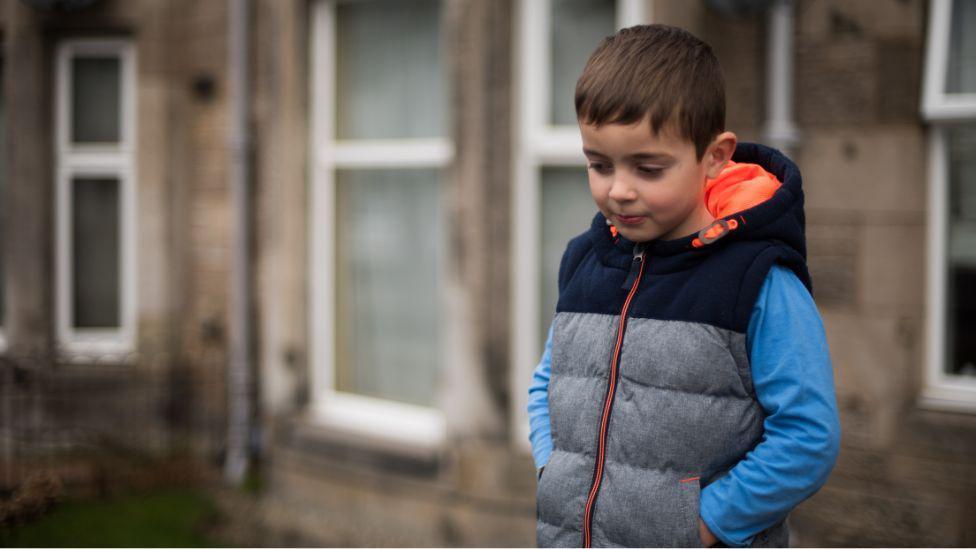
Save the Children Scotland called for more action on child poverty
The latest figures show that 26% of children are living in relative poverty in Scotland, despite targets to reduce it below 18% by the end of the financial year, and to 10% by 2030-31.
Fiona King, senior policy and public affairs manager at Save the Children Scotland, welcomed the priority for child poverty, but called for more action.
She told BBC Radio's Good Morning Scotland: “The reality is there is nothing in this programme for government that truly shifts the dial on child poverty.
“And we’re concerned we do not know what the roadmap is to get us to 2030."
Ms King said she was "disappointed" by the decision to scrap a commitment to provide free school meals to all P6 and P7 pupils.
"We can’t have a thriving economy if one in four children are living in poverty," she said.
“However hard this is for the Scottish government it is much, much harder for the families that can’t afford to put food on the table.”
Ms King praised the Scottish Child Payment - a weekly payment of £26.70 to low-income households for every child under 16 - but called for it to be raised to £30 this year, and up to £40 by 2026.
And while she recognised the Scottish government was facing a difficult financial situation, she criticised the decision to spend almost £150m on a council tax freeze.
"That wasn’t an anti-poverty measure it didn’t help the poorest households," she said.
Citizens Advice Scotland also welcomed the prioritisation of child poverty, but called for more resources and “meaningful” collaboration between parties.
'Things are tough'
Deputy First Minister Kate Forbes told BBC Radio Scotland that public finances were “extremely constrained” and accused the UK government of imposing austerity.
Sir Keir Starmer's administration has said it would make "tough decisions" to address a £22bn hole in public finances when it announces its budget next month.
Ms Forbes said: “We know that things are tough.
“We are trying to push every penny as far as possible to focus on this mission.
“Do we have more to do? Absolutely, which is why it was a priority in the programme for government.”
She pointed to figures, external that suggest 100,000 children are being kept out of poverty by the Scottish Child Payment.
The finance secretary insisted that while ministers were still aiming to provide universal primary school meals, they could not do so until more funding "becomes available".
Primary school meals are already provided to all pupils in P1 to P5, and the Scottish government previously committed to expanding that to P6 and P7 by 2026.
However, the programme for government pledges only to provide meals to P6 and P7 pupils who receive the Scottish Child Payment.
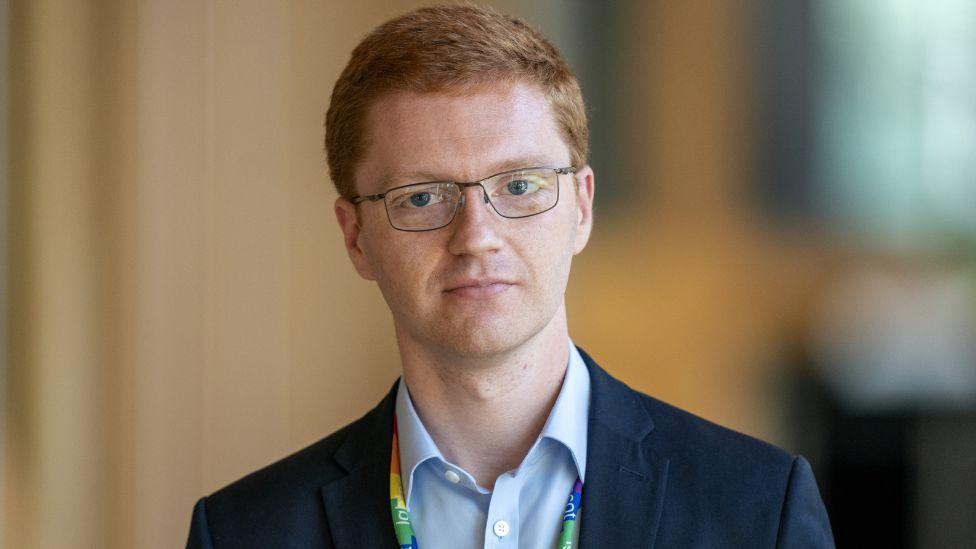
Scottish Green MSP Ross Greer signalled that his party would be unable to support the minority SNP administration's budget
This year’s Scottish budget announcement, planned for 4 December, will provide more detail on the SNP's spending plans.
It be the first since the party ended a power-sharing agreement with the Greens. It left the SNP administration with a minority in parliament.
To pass the budget, some opposition MSPs would have to either back it or abstain when it comes to a vote early next year.
The Scottish Greens have supported every government budget since 2016.
But they have criticised decisions to roll back on several measures - including cutting a nature restoration fund and the active travel budget and ending a pilot that scrapped peak rail fares.
The Greens also condemned the government over free school meals, and for altering a commitment to ending conversion practices.
The party's education spokesperson, Ross Greer, told BBC Radio Scotland: “You don’t secure the support of Green MSPs by ditching, cutting, reversing the things that we care about.
“I really struggle to see how we are in a similar situation now to what we were in that last session of parliament.”
He added: "If we can’t even get previous agreements delivered, how can we possibly trust them to deliver on any new agreement that we would reach later this year."
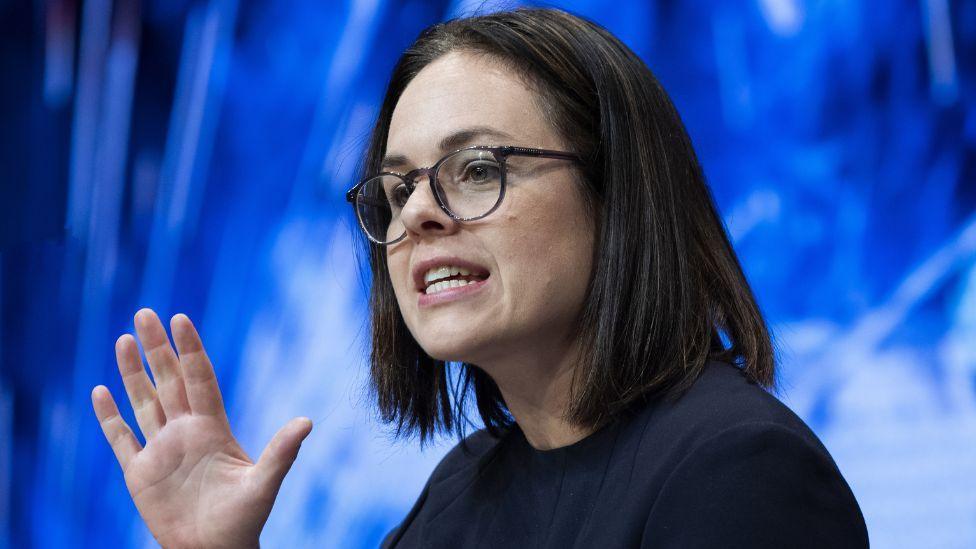
Deputy First Minister Kate Forbes says the Scottish government is pushing "every penny as far as possible"
After First Minister’s Questions, Mr Swinney said his government had to “engage constructively” with other parties.
“We've got to find people who work with us to get a budget passed,” he told reporters.
“And I've got a wee bit of experience of doing that type of stuff over the years, and most of it successful."
The SNP leader said a budget had to be agreed to ensure public services received funding on time.
He added: “Or there could be an election but then I don't think members of the public particularly want politicians to go having elections when they're not supposed to have them.”
Budget vote
The SNP currently have 62 MSPs - excluding John Mason, who has been stripped of the party whip.
They would need 65 votes for a majority to pass the budget.
If the vote ends in a tie at stage one, the presiding officer's casting vote - which traditionally goes "in favour of the status quo" - would let the bill proceed, to allow talks to continue.
But if there is a tie in the final vote, the "status quo" would be the existing budget arrangements - so Alison Johnstone would vote the new budget down.
If the parliament is completely deadlocked, it is possible that an election would have to be called to break it.
- Published4 September 2024
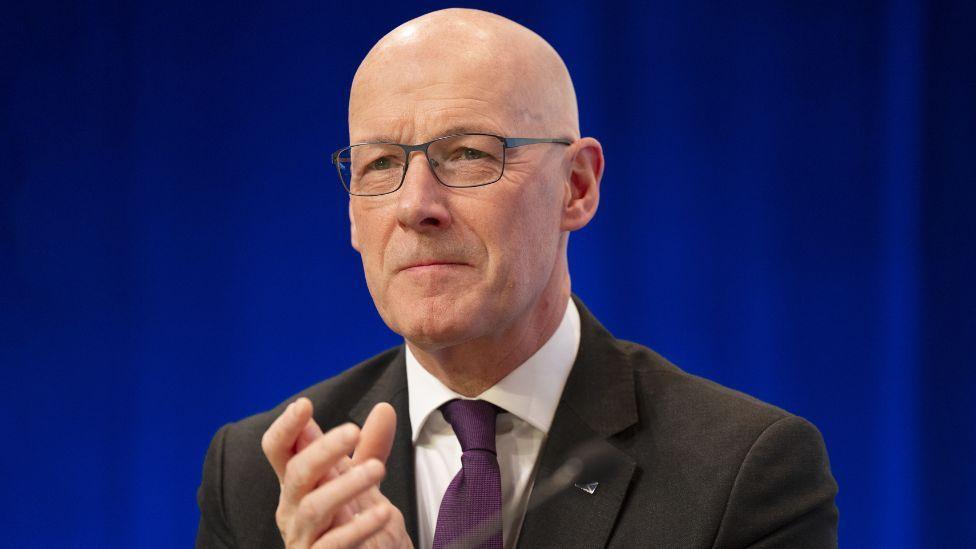
- Published4 September 2024
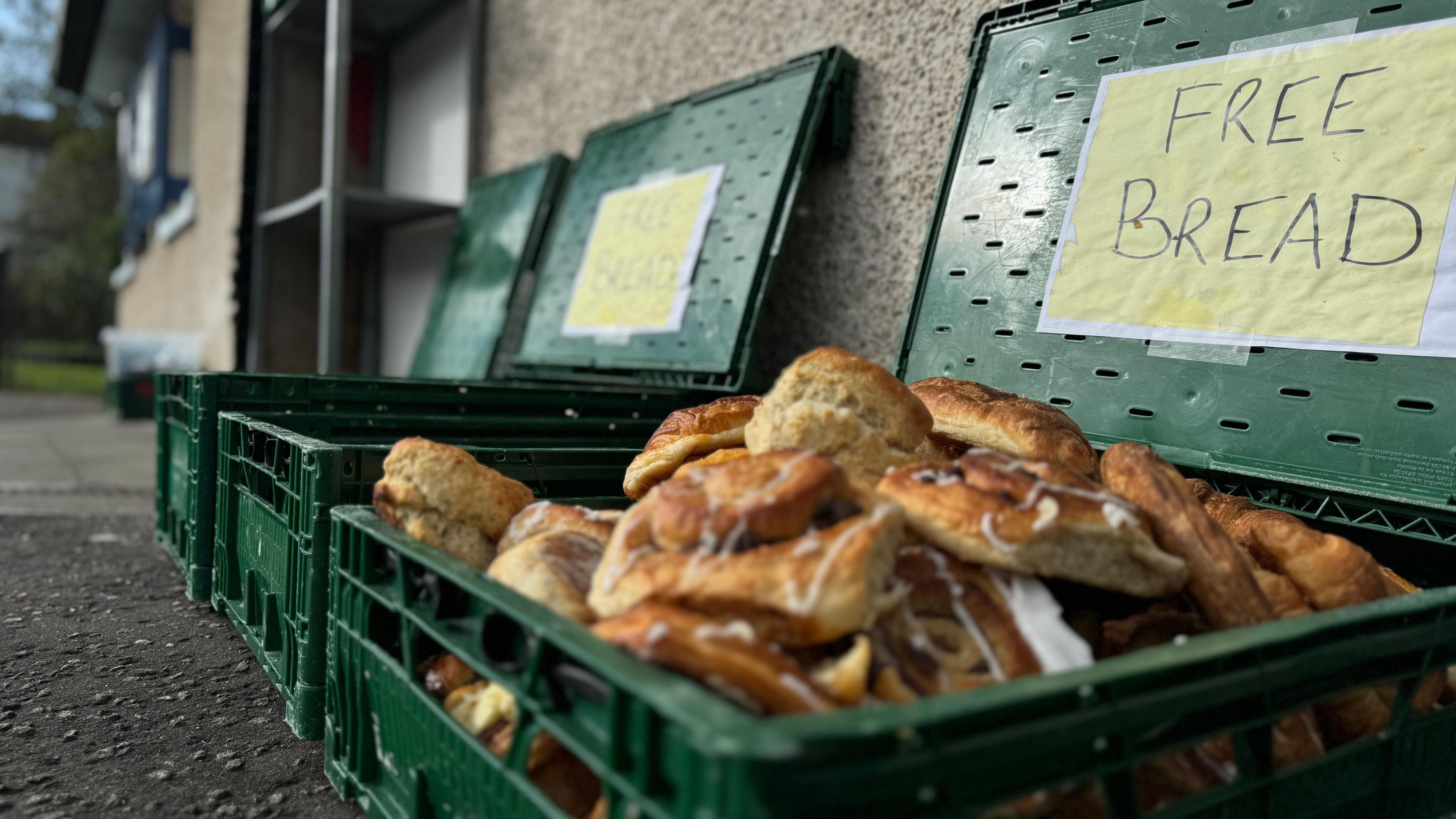
- Published3 September 2024
